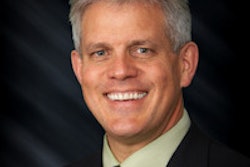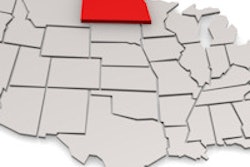
North Dakota is moving forward with a study to assess the use of midlevel providers (MLPs). Legislators say there are not enough dentists in the state to provide dental care, especially for the poor and Native Americans on reservations.
The measure, HB 1454, has passed the state's House of Representatives and the Senate but faces stiff opposition from the North Dakota Dental Association (NDDA).
The bill's author, Rep. Marvin Nelson (D-Rolla), said many Medicaid patients, especially children, either can't find an available dentist or they or their families must drive hundreds of miles to find one who will see them. North Dakota has a population of just under 700,000 people, about half of whom live in rural areas.
"I live in a county where there's a severe shortage of dentists, and I've got a lot of kids with bad teeth who are having trouble learning, and they're not getting dental care," he told DrBicuspid.com. "We have a large number of Medicaid patients, and when they do get to see a dentist, it's an appointment for six weeks from now and they have to drive 120 miles one way."
“We have a significant rural population that's growing and needs dental care.”
MLPs could significantly help the millions of children who have no access to dental care, according to a report released this week by the Pew Charitable Trusts.
Part of the reason Nelson introduced the measure is because the Affordable Care Act authorizes the Indian Health Service to use dental therapists, but only if the state allows it.
"So even if we don't have them, if we just allow them, that would potentially open up a pool for my local Indian Health Service to use them," he pointed out.
Canada allows dental therapists, and Nelson said they might be motivated to come across the border to practice if the state allows it.
"Many people from this part of the country go up to Canada for dental care, often from a dental therapist, and they don't even realize they're being treated by a dental therapist," he noted.
Who is opposed
Nelson said he and his fellow lawmakers have heard from a number of dentists during hearings about HB 1454 who oppose the concept of dental therapists.
"I told them, 'I'm not wedded to this solution; what's your solution?' " he said. "Basically, their solution is to leave the status quo the way it is."
Nelson said his local dentist isn't opposed to MLPs, and young dentists also seem to be more supportive of the concept. He compared opposition to dental MLPs to physicians' resistance to nurse practitioners.
"I remember going through the same fight about MLPs in medicine regarding nurse practitioners and physician assistants," he said. "Despite all the fighting the doctors waged against it, I don't think anyone can imagine healthcare in North Dakota if we took MLPs out of it today."
Dental therapists in Minnesota must complete a two-year program to perform basic preventive and restorative procedures and primary extractions with the onsite supervision of a dentist. Adequate training would make dental therapists competent to perform extractions, Nelson said.
In addition, studies have shown that MLPs can add to dentists' profitability -- "just as dentists make more money because they have dental hygienists doing work in their offices," he noted.
Dentist shortage: Yes or no?
But NDDA President Alison Fallgatter, DDS, a Jamestown orthodontist, called the bill "an overreaction to a perceived workforce shortage," according to her testimony to a legislative business committee.
"There are many barriers to accessing oral healthcare besides a perceived workforce shortage," Dr. Fallgatter said. She cited poverty, geography, lack of oral health education, language and cultural barriers, fear of dental care, and the belief that people who are not in pain do not need dental care. Federal funding and administrative challenges in the clinics are barriers for the reservations, she added.
The NDDA has supported legislation to allow medical personnel to apply fluoride varnish; worked to expand the scope of practice for hygienists; and modified the supervision of hygienists by dentists so the hygienists can go into schools, public health settings, and long-term care facilities to provide cleanings, sealants, and fluoride varnish, Dr. Fallgatter said.
A dental loan repayment program that encourages dentists to practice in rural areas has been successful in providing dental care in such communities, she added.
In addition, the NDDA has worked with the ADA to develop a program to improve the oral health of people on reservations.
Other factors
As in other states, dentists usually set up practice in metropolitan areas such as Bismarck and Fargo, Nelson noted.
"We have a significant rural population that's growing and needs dental care," Nelson explained. "Maybe in some cases that situation would appeal more to a midlevel provider or a dental therapist."
Dr. Fallgatter noted, however, that of the 18 dental therapists who have graduated from Minnesota's dental therapy schools, only one has gone into a rural public health area.
"We must not blindly follow something that was enacted in Minnesota and has yet to demonstrate improvement of the oral healthcare in rural areas of that state," she told lawmakers.
Rep. George Keiser (R-Bismarck), who is on the board of a Bismarck hospital, told Nelson that 17% of hospital emergency room (ER) visits are due to dental emergencies.
"That's a huge cost, and the hospitals aren't equipped to treat them, so we're paying for all these ER visits and getting nothing for it, and their dental problems only get worse," Nelson observed. "It's just an extremely expensive way to provide a service that really shouldn't be that expensive."
Another issue is the growing number of North Dakota dentists nearing retirement. Nelson said 45% of the state's dentists are older than 55.
However, according to Dr. Fallgatter, there has been a 15% increase in dentists practicing in North Dakota in the past decade, and the state has the highest dental student to dentist ratio in the U.S. "So future dentists are in the pipeline," she told legislators.
Another perspective
"In most communities, there's so much care needed; they need quite a bit of work -- fillings and extractions," Kathy Mangskau, RDH, MPA, told DrBicuspid.com. Mangskau serves as the dental consultant for the Ronald McDonald Care Mobile, which provides dental care to poor children, including Native American children on reservations.
The major reasons cited by parents for not getting dental care for their children are they can't find a Medicaid dentist, they don't have enough money, or they don't have transportation, Mangskau noted.
Dental problems also pose an added hurdle for the unemployed, Nelson said.
"Workers are not productive if they have bad teeth," he said. "What's happening in this country is poor people have bad teeth, and that is one of the major hurdles they have to overcome in order to move up in the economy. I truly think bad teeth are one of the major things keeping people on welfare and out of the workforce."



















